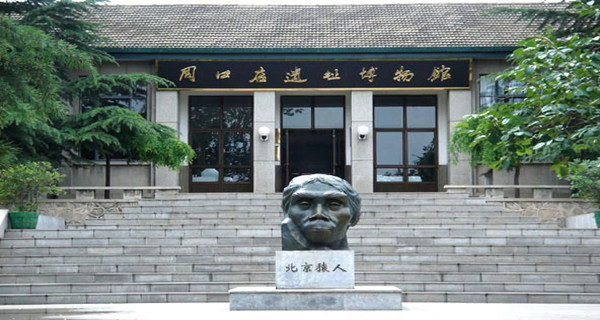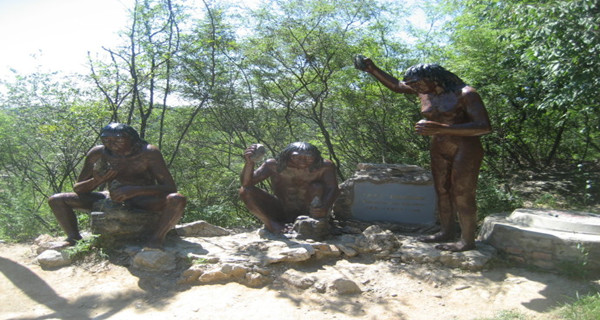Founded and opened to the public in 1953, Peking Man Site at Zhoukoudian is a paleoanthropological cultural relics museum located at the foot of Longgu Mountain in Zhoukoudian in Fangshan District. Since the discovery of a complete skull in 1929 by Mr. Fei Wenzhong in Longgu Mountain, Zhoukoudian- in more recent times noted for its production of lime- became world-famous as the "home of the Chinese ape-man." Now the Zhoukoudian has become a World Cultural Heritage, 4A National Scenic Spot, Major Historical and Cultural Site Protected at the National Level and Hundreds of National Patriotism Education Demonstration Base.

About 40m of the cave have been excavated, accounting for all the ape fossils, stoneware, and fossil of mammals unearthed at the Peking Man Site, archaeologists believe that Peking man lived here approximately 200,000 to 500,000 years ago. The average brain volume of the Peking man reached to 1088 milliliters. The skull of this characteristic was unique and had the obvious characteristics of Mongoloid, and the male was 156 cm tall, while female was 144 cm tall. Their food mainly came from hunting and gathering. The Peking man had already learnt to use fire and eat cooked food, and the use of fire fully completed the characteristics of people. The discovery of Peking man had laid a solid foundation to the research of ancient Chinese and its culture.

Address: Zhoukoudian, Fangshan District.
Opening Hours: 8:30-16:30
Ticket: 30 RMB for adults, 15 RMB for students
Bus Route: Take No. 917, 616, and arrive at Fangshan, and then transfer to a special-line bus No. 2 to arrive at Zhoukoudian Museum.
Self-driving Route: Get onto the Beijing-Shijiazhuang Highway and get off at the exit of Yancun, then turn right at Zhoukoudian.



